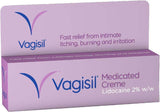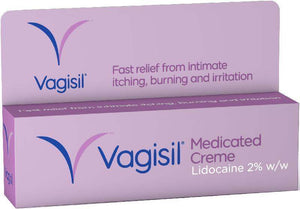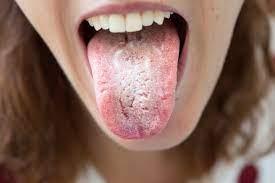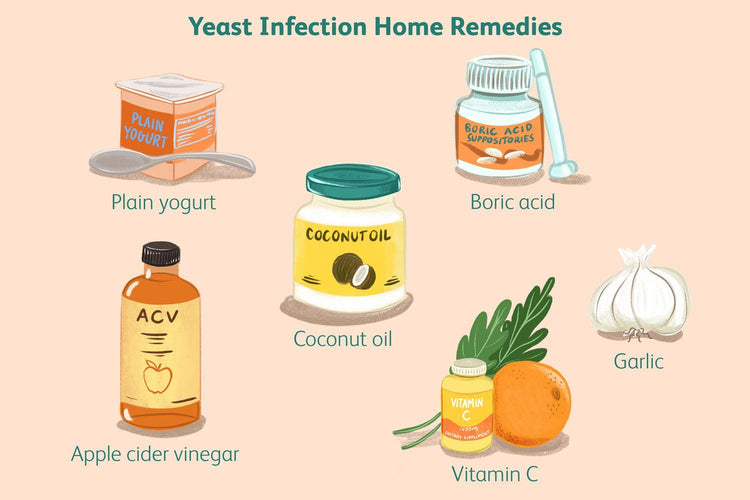How long does it take to get rid of thrush?


Related products
What’s covered?
Thrush is an unpleasant infection. And when you get it, you want to do what you can to get rid of it as soon as possible. But how long will that be? This article will talk about what thrush is, how long it takes to go away, and how to treat it to disappear faster.
When left untreated, thrush will usually go away within eight weeks, but it could also worsen.
With treatment, it will only take 1 to 2 weeks. However, if it occurs regularly, it can take up to six months to go away. In this case, it is advised that you see a doctor.
To learn about Welzo's range of thrush treatments, see our information page here.
What is thrush?
The first thing to establish is what exactly thrush is.
Thrush, or to give it its scientific name, candidiasis, is a yeast infection that causes mould to grow in places you really do not want it to do so.
The most common places for thrush to occur are the mouth and genitals. Although thrush can be passed during sex, the fungal infection is not recognised as an STD because it is transferred through skin-on-skin contact.
Thrush is not a deadly disease, but it can be unpleasant to live with.
Thrush in men and women
Thrush is a bacterial infection commonly found among males and females. It is normally harmless but it is sometimes uncomfortable and keeps returning. It is classified in terms of sex-related infection.
Oral Thrush
You might experience oral thrush if you have white/yellow spots on the tongue. Oral thrush, also called oral candidiasis, is a form of infection in which the yeast candidaceae bacteria accumulate inside our mouth's lining. If left untreated, it could spread to others in our system such as the liver and kidneys. Oral thrush is widespread but is usually more commonly observed in newborn babies in their first years of life as well as immunocompromised people such as people living with cancer. Oral thrush is an infectious disease that can also cause bleeding.
Vaginal thrush
Vaginal yeast infections are quite common but can be easily treated. It's a very personal matter but some people can eliminate infection more quickly. In this article, we examine the long-lasting effects of a yeast infection with no treatments.
Symptoms of Thrush
If you have thrush, you should not have much doubt about it. It's not one of those infections that hide well. Here are some symptoms you should look out for.
The first, your discharge, be that vaginal or from the penis will resemble a thick, lumpy white substance. This is a result of the fungus clumping together inside the regular discharge.
You may also find that the infected area is itchy. As painful as it is, it's best to avoid scratching, which may aggravate the area.
It will be particularly painful when you do activities such as sex or urinating.
In some cases, you may even find an unpleasant and pungent smell coming from that area.
Causes of thrush
Now we know what truth is and how to get rid of it. The next question is, "what causes thrush?".
What causes Candida to attach itself to our bodies?
The most common cause is triggered by sex. Someone with the infection passes it to another person when their skin touches.
It can also be caused by exposure to warm, moist environments. When the bacteria balance on your skin changes, it can cause an influx of mould, including thrush.
Other causes of thrush include damaged skin, antibiotics, diabetes, a poor immune system, hormone replacement therapy, and pregnancy.
Causes continued
All people have a small amount of candida in their throat and gastrointestinal tract. During times of stress, some health conditions and medicines are liable to increase candida growth and reduce candida. This may cause a number of problems.
How long does thrush take to get rid of with treatment?
Most people who contract thrush will undergo treatment. There are several options for treatment, and which one you pick will mostly depend on what you prefer or what your doctor recommends.
The three main types of thrush treatment are:
1. oral tablets (tablets that you put into your mouth),
2. pills that you insert into your vagina and
3. cream that you apply to your genitals.
If you do the correct treatment and listen to your doctor's advice, the thrush will usually disappear within 7 to 14 days.
What if thrush doesn't go away within 7 to 14 days?
We say "usually" because there will be sporadic cases where regular treatment does not work. For example, if you get it more than four times in 12 months, it will take another six months before it completely disappears.
Why thrush lasts longer in some people than others is not entirely clear. However, specific actions such as regular sex with someone who also has thrush can prolong means that you can contract it again if you are both not treated for it. Other less controllable factors, such as menstruation, can also make thrush last longer.
How long does thrush take to naturally go away?
Even if you do not take any form of treatment, thrush will go away naturally in many cases. However, we certainly would not recommend this.
When left alone, thrush will usually take about eight weeks to go away. This is much longer than the two weeks it will take if you undergo treatment.
However, there is no guarantee it will go away in eight weeks. In some cases, time can worsen thrush instead of improving it. This is why it is recommended that you see a doctor to start treatment as soon as you notice it.
How to ease the discomfort of thrush
Whilst you are waiting for the thrush to disappear, there are some steps you can take to ease the discomfort.
Do not use soap or shower gel on the affected areas in the shower. These products can potentially irritate the affected area and make it worse. Instead, use E45 cream, which prevents the area from becoming damp.
Mould loves damp. Dry the affected area as soon as possible when you get out of the shower.
Be careful with what you wear. Use underwear with a breathable material such as cotton. And make sure it's not too tight. Ladies, avoid wearing tights while you wait for the thrush to heal.
And it's also best to avoid sex. If you and your partner both have thrush, sex will make it worse for both of you and you may re-infect one another.
How to get rid of thrush quicker
If you are not super patient and want to get rid of thrush as quickly as possible, I am afraid there is no way for you to get rid of it in a single day. But, you can take steps to make sure it doesn't last longer than it needs to.
Firstly, follow all of the advice given in this article's "easing discomfort" section. By reducing the pain it causes, you will also reduce the chances of spreading.
It will help if you listen to your doctor's advice and apply the correct treatment as recommended.
We offer a range of thrush treatments for both men and women. To see the variety of products on offer, click here.
For a full range of blood tests and medications, visit our Welzo Online Pharmacy Page. For more details, click here.
Related Thrush and Fungal Treatments
- Buy Daktarin Cream
- Buy Daktarin Gel
- Buy Vagisil Creme
- Buy Canesten cream
- Buy Fluconazole
- Buy Canesten Combi Creme
- Buy Canesten Thrush Pack
- Buy Gyno-daktarin
- Buy clotrimazole
- Buy Canesten Thrush Duo
- Buy Diflucan
- Buy Scholl Fungal Treatment
- Buy Lamisil
- Buy Curanail
- Buy amorolfine
Thush Related Articles
- How to get rid of thrush quickly
- Immediate thrush relief
- Why do I keep getting thrush?
- How to treat thrush in women
- Thrush on the tongue
- Thrush and diabetes
- Thrush and antibiotics
- Can stress cause thrush?
- Does thrush go away on its own?
- How to soothe thrush itching
- How long does it take to get rid of thrush?
- How to treat thrush in men?
- Thrush in babies
- Thrush and the elderly
- Is thrush an STI?
- Angular Cheilitis
- Vaginal thrush
- Thrush and HIV
- Best diet for candida
- Probiotics for thrush
- Thrush in animals
- Thrush and sexual health
- Thrush and the immune system
- Econazole
- Thrush pictures in females
- Nystatin for oral thrush
- Research advancements in thrush treatment
- Chronic yeast infections
- Can thrush cause bleeding?
- Esophageal thrush
- Natural thrush remedies
- Breastfeeding thrush
- Nipple Thrush
- Is thrush contagious?
- Penile Thrush
- Recurring Thrush
- White Tongue: Causes, Treatments & Prevention
- Gentian Violet



















 Rated Excellent by 26,523+ Reviews
Rated Excellent by 26,523+ Reviews